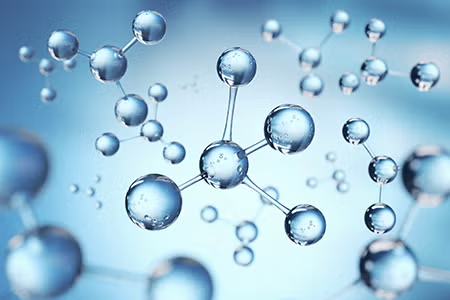National Nanotechnology Day provides a wonderful opportunity to raise awareness about a tiny science that enables incredible scientific advances that enrich our daily lives.

What is nanotechnology, and how small is it? Nanotechology is the study and manipulation of matter at incredibly small sizes. “Nano” means a billionth of a meter. To put that in perspective, the tip of a ballpoint pen is about 1 million nanometers wide. Hence, a nanometer is much smaller than the human eye can see.
Why is nanotechnology important? Using nanotechnology, scientists and engineers can create new materials, products and devices, and technical advances that yield life-changing results. This amazingly tiny science is at the forefront of some extraordinary innovations in healthcare, information technology, and the automotive and aerospace industries.
Here are a few ways nanotechnology is changing our world:
- Detecting childhood tuberculosis. Researchers are developing methods to help identify tuberculosis in children. The methods utilize gold nanoparticles linked to antibodies to detect two biomarkers of tuberculosis infection in blood cells, a potentially more efficient alternative to traditional diagnostic methods.
- More powerful electronics. Nanotechnology can help meet the demand for ever-increasing computing power in our modern world and consumers’ desire for smaller electronics. Researchers are exploring ways to design and produce sensors and smaller, more powerful computer chips using precisely placed nanowires.
- Environmental pollution control. Nanomaterials are being deployed in new technologies such as sensors and filters for monitoring and treating contaminated groundwater and air emissions. Nanomaterials can help detect pollutants in small amounts and enable smaller, more sensitive and more accurate pollution control devices.
- Locating cancerous tissue during surgery. Cancer treatment can have enormous physical, emotional and financial consequences for patients and their families. Medical researchers are using nanotechnology to develop more targeted, less invasive tools for cancer detection and treatment that allow cancer surgeons to remove tumor tissue more efficiently and help doctors prescribe doses of anti-cancer medicines more precisely.
Looking for more ways to celebrate nanotechnology?
The National Nanotechnology Initiative plays a critical role in coordinating research, investments and education efforts across the federal government. This year’s National Nanotechnology Day themes are responding to climate change and improving human and environmental health. Visit the National Nanotechnology Day website to see how you can participate and learn more about the role of nanotechnology in our lives.